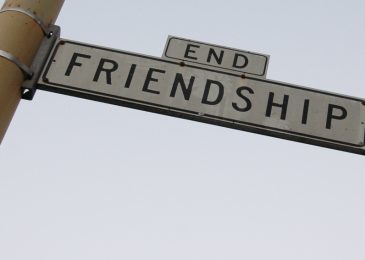Kendall Worth is a poverty activist and a frequent contributor to the Nova Scotia Advocate
KJIPUKTUK (Halifax) – I want to start this article off by letting my readers know that this is an article I am writing from the bottom of my heart.
This article talks about how friendships end, something I personally experienced within the past ten years of my life. This is a first voice article on the issue of trying to keep friendships.
If you are like me and you have a learning disability and impulse control disorder you need help understanding what you did wrong to cause a friendship to end.
When it comes to choosing friends, compassionate, positive and upbeat individuals are the best companions because of their ability to make a positive impact on you. In my personal life this is exactly what I look for in a friendship.
Friendships stem from shared interests, feelings of comfort and having fun together.
I was taught in life that paying attention to your gut feelings is important when it comes to deciding who you want your friends to be. Analyzing the effect that the friendship is having on you is also important. Trying your hardest to maintain the friendship is also important.
When I go to places like the drop-ins and soup kitchens where poor people go, one thing I experience is the fact that their have been numerous times when I tell people about the Benefits Reform Action Group and activism, people treat me like I am the laughing stock.
At the same time I cannot say that about everybody who lives in poverty because the odd person is interested in advocating for this. A lot a lot my personal friendships and social contacts in life are people who are interested in wanting to move forward from poverty.
When friendships end and I tried to find a way to show them that I am upset about losing a friend it only made things worse. I just have to respect their decision.
If you are like me and you have a learning disability and impulse control disorder you need help understanding what you did wrong to cause a friendship to end.
In my experiences boundaries at times during a friendship remain a mystery and are downright difficult to figure out.
I know other people who have those disabilities who would let that bring them down, but not me.
As another part of my personal story I will say that it took some time for me talking to counselors and talking to certain people I have in life for support to get over the loss of these friendships.
Knowing your boundaries is important in a good friendship. The one thing you cannot have is a controlling personality as part of a good friendship. In my experiences boundaries at times during a friendship remain a mystery and are downright difficult to figure out.
If you can, please support the Nova Scotia Advocate so that it can continue to give a voice to people like Kendall and cover issues such as poverty, racism, exclusion, workers’ rights and the environment in Nova Scotia. A pay wall is not an option for us, since it would exclude many readers who don’t have any disposable income at all. We rely entirely on one-time donations and a group of twenty or so dedicated monthly sustainers.





Thank you Kendall for your candid and honest article. It took me a number of years to figure out I didn’t have to be friends with everyone. Sometimes these are hard lessons learned, especially when it comes to understanding and knowing about boundaries. Friendships grow and change and some we have to leave behind and new friends come into our lives.
What’s become the most important lesson is knowing I need to be my very own best friend first and foremost, the rest will take care of itself. I believe we don’t have to be honest about absolutely everything, particularly if it is going to hurt another, but I need to have a foundation of honesty towards those we choose to have friendships with, and have an open reciprocal communication, so we can understand one another.
So true about boundaries, and keep on advocating for poverty.